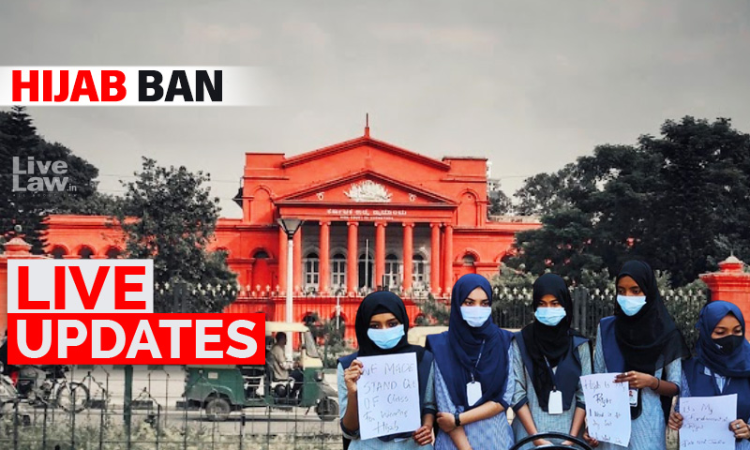Hijab Ban- Karnataka High Court Full Bench Hearing (Day 7)- LIVE UPDATES
LIVELAW NEWS NETWORK
21 Feb 2022 2:07 PM IST

Live Updates
- 21 Feb 2022 3:30 PM IST
AG : "The protection under Articles 25 & 26 of the Constitution is with respect to religious practice which forms an essential and integral part of the religion. A practice may be a religious practice but not an essential & integral part of practice . The latter not protected"
- 21 Feb 2022 3:23 PM IST
AG : "..regarded by the said religion as its essential and integral part; otherwise even purely secular practices which are not an essential or an integral part of religion are apt to be clothed with a religious form and may make a claim for being treated as religious practices"
Next Story


